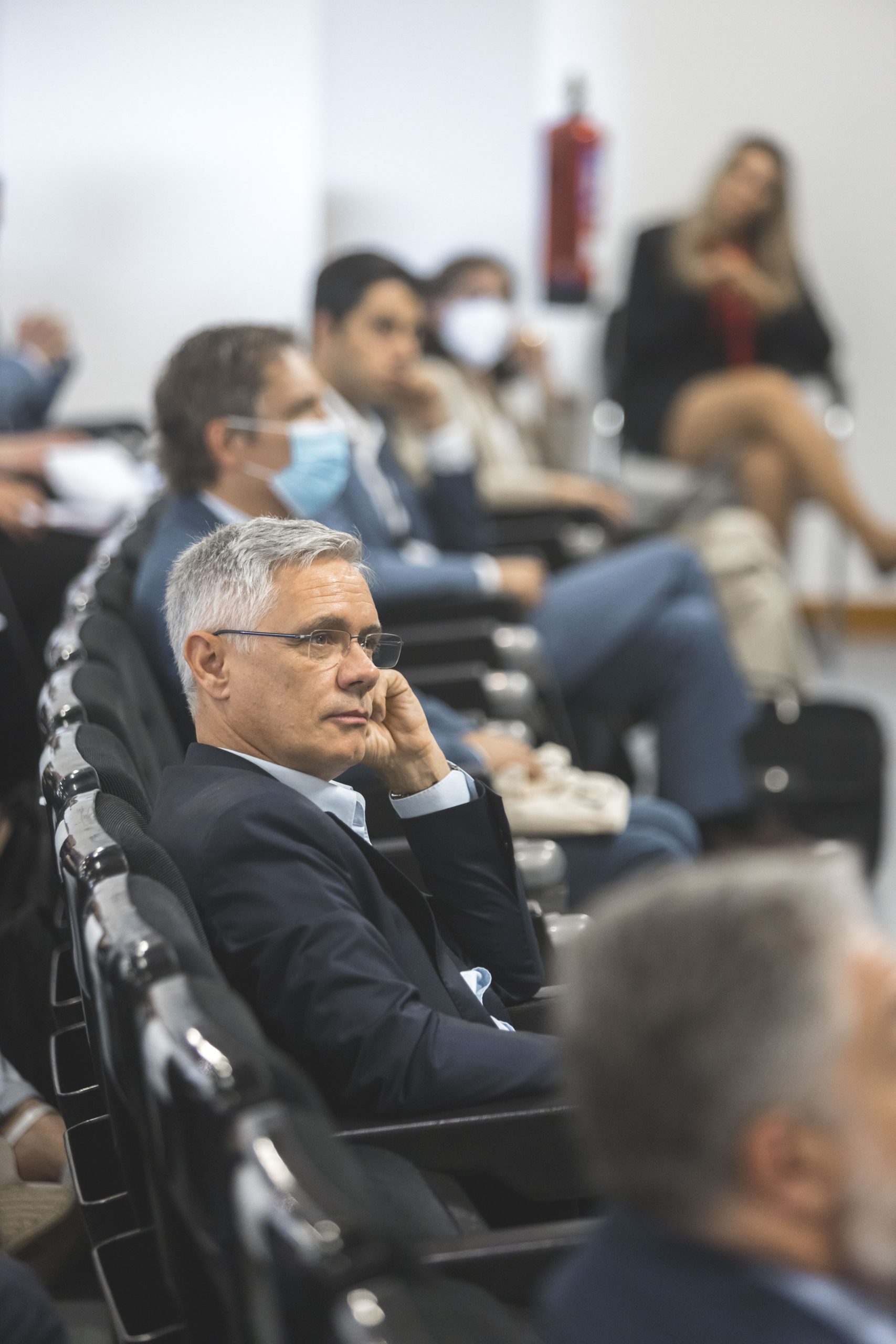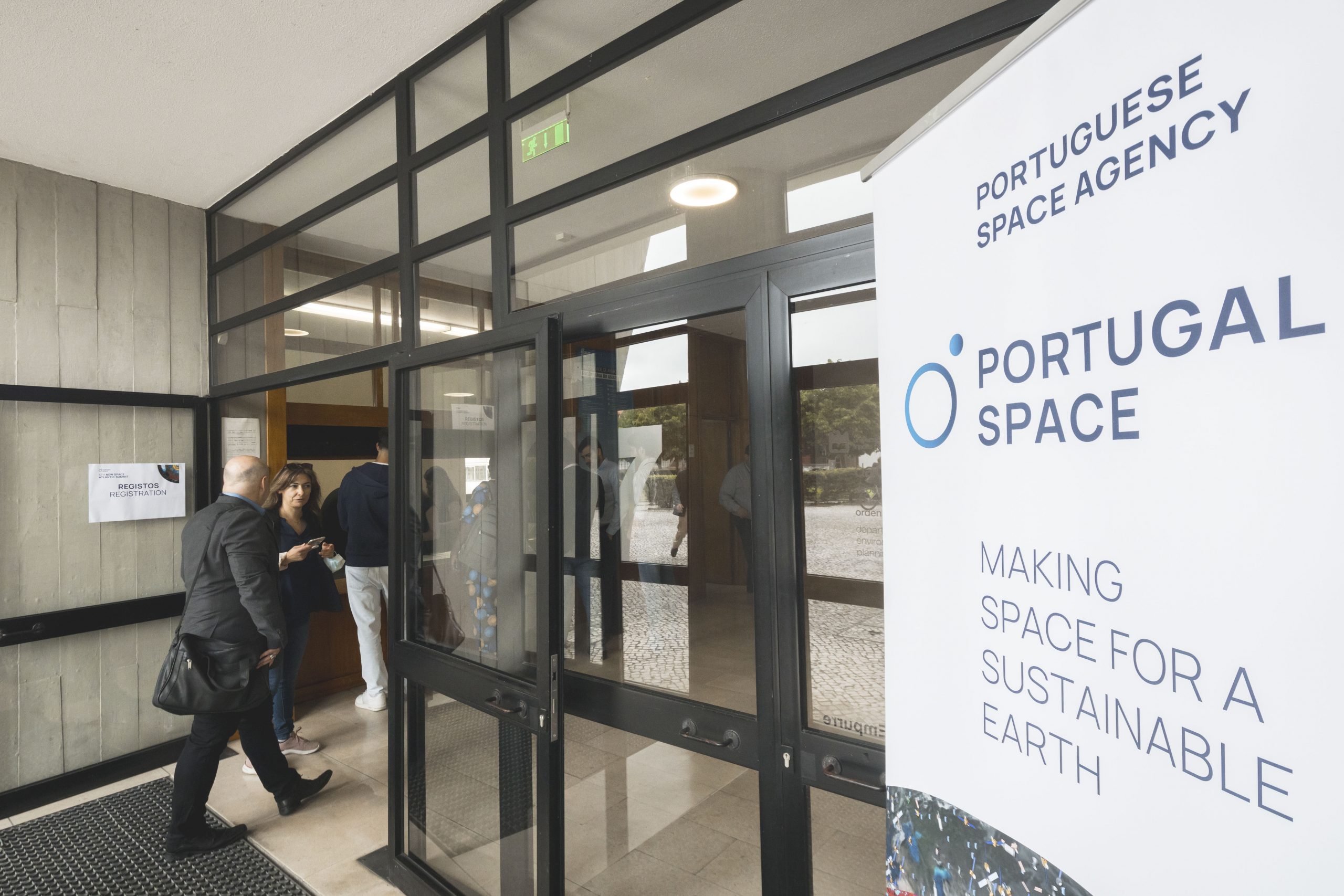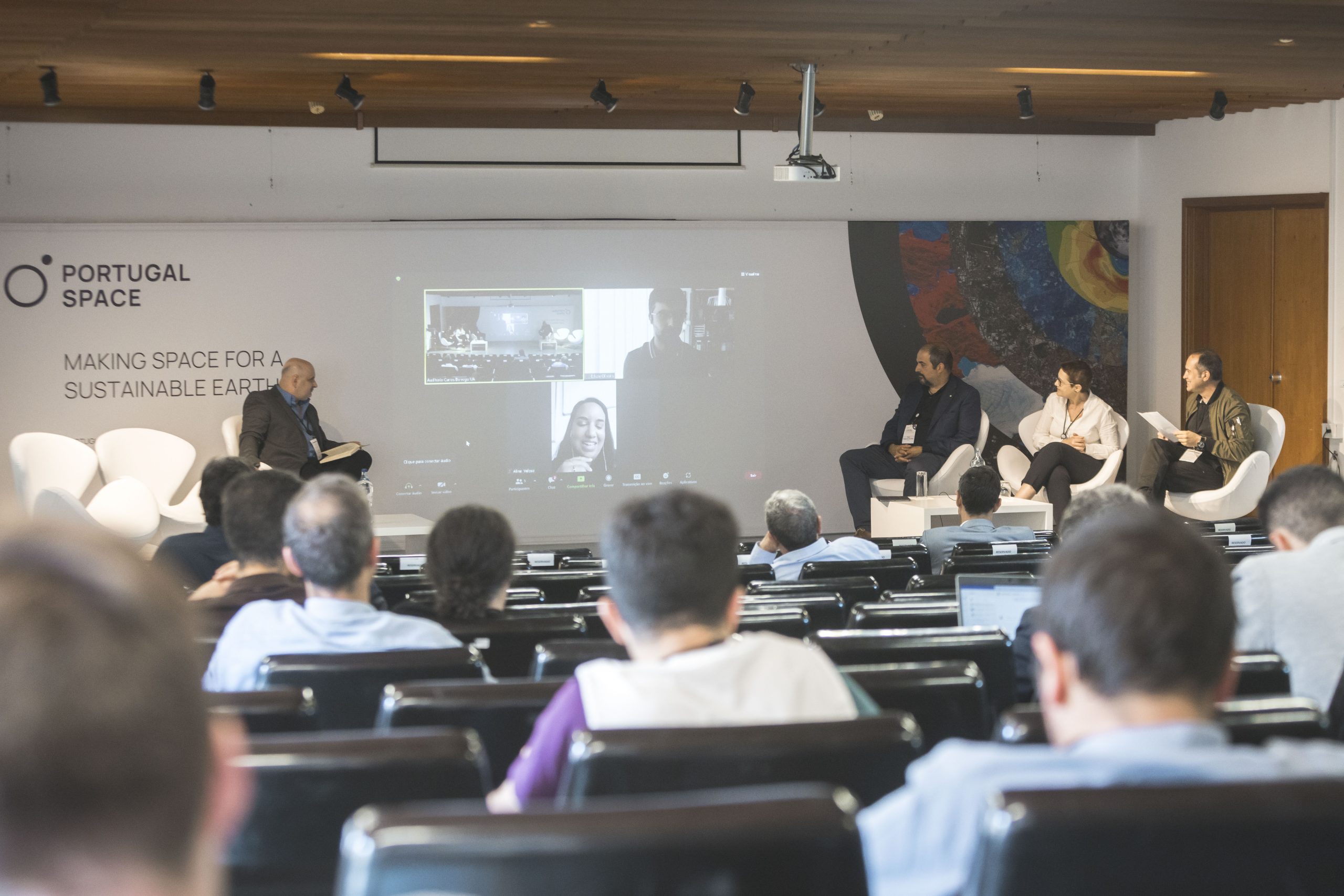At the New Space Atlantic Summit, sustainability was the theme for all conversations
The 5th edition of the conference organized by Portugal Space brought together more than 120 actors and stakeholders from the Portuguese and international space sector in Aveiro. Sustainability was the key-word of the event.
The Department of Environment and Planning (DAO) of the University of Aveiro opened its doors on June 9 to receive the 5th edition of the New Space Atlantic Summit, a key event in the agenda of the actors and stakeholders of the national and European space ecosystem. Organized by the Portuguese Space Agency, the conference attracted more than 120 participants to Aveiro’s academy. Next year, the New Space Atlantic Summit hopes to bring even more people together, but this time in Guimarães, as announced by Hugo Costa, the agency’s director, at the end of the event.
The truth is that anyone passing by the DAO before the start of the event would encounter a somewhat atypical — but dynamic — movement. At the doors and in the building’s atrium, participants were already exchanging ideas and starting conversations that would last for days.
This year’s edition of the New Space Atlantic Summit paid special attention to trends, new technologies, new services and innovative solutions throughout the space sector’s value chain — and with space sustainability setting the tone, under the motto Making Space for a Sustainable Earth.

The President of the Portuguese Space Agency, Ricardo Conde. © Portugal Space
The President of the Portuguese Space Agency, Ricardo Conde, began the conference with a speech that linked all the topics that would be discussed throughout the various sessions, drawing special attention to the important role of higher education institutions in the development of the Portuguese space sector. The Rector of the University of Aveiro, Paulo Jorge Ferreira, and Joana Mendonça, the President of the National Agency for Innovation (ANI), who completed the opening session of the conference, concurred, adding the importance of the decentralization of events such as this one.
Jean-Yves Le Galle, former president of CNES, then took the stage, presenting a historical perspective of the space sector’s evolution over the last decades.
The first session of the morning showed the will and geographic variety of the Portuguese space sector – besides serving as a stage for the presentation of the work developed by the invited companies and research centers. Aurora Baptista, CEO of BEEVERYCREEATIVE, and Eduardo Soares, Innovation Director of Amorim Cork Composites (both “playing” at home, since the companies are based in Ílhavo and Santa Maria da Feira, respectively), were joined by Nelson Oliveira, CEO of SpacEngineer (Coimbra) and Rui Curado da Silva, researcher at the Laboratory of Instrumentation and Experimental Particle Physics (Lisbon). Moderated by Luís Ferreira, Business and Corporate Strategist from Airbus, the speakers discussed the capacity for development and innovation of new materials and new production processes in orbit — on which the sustainability of space activity depends.

The New Space Atlantic Summit is a key event in the agenda of the actors and stakeholders of the national and European space ecosystem. © Portugal Space
Throughout the day, all sessions were articulated under this same theme. But the session whose theme, in Ricardo Conde’s words, is one of the “pragmatic axes” for the Portuguese Space Agency, was about monitoring space garbage.
At a time when the vehicles we send into space must be increasingly thought out, designed and built to avoid the accumulation of objects that end up becoming garbage and the risk of collisions with the millions of space debris that surround Earth orbit, it was imperative that the New Space Atlantic Summit discuss these issues.
Moriba Jah, professor at the University of Texas – Austin, co-founder of Privateer, and above all a space environmentalist, connected with the New Space Atlantic Summit from the United States. Moriba Jah’s words summed up the need to look at the competitive Space race more carefully: “There is no multi-billion dollar economy for anyone if we keep the amount of space junk in orbit.”
With that message given, there followed a panel made up of companies and institutions committed to circumventing this issue, under the moderation of Inês D’Ávila, responsible for Security and Space Transportation projects at Portugal Space. Participants included Chiara Manfletti, Neuraspace operations director, Muriel Richard-Noca, co-founder and Chief Engineer of ClearSpace, Natalia Archinard, Deputy Director of Education, Science, Transportation and Space at the Swiss Federal Department of Foreign Affairs, and Stewart Bain, CEO of NorthStar Earth and Space.
Eyes set on the future
Never before have we seen the cost of access to space decrease like now which, combined with successive technological advances opens doors to new Low Earth Orbit (LEO) markets. Manufacturing in space, in-orbit maintenance, computing in space, commercial space stations and space tourism, microgravity research, and telecommunications, the potential is numerous and is attracting the attention of many space investors who anticipate a boom in this market in the coming years.
Raphael Roettgen, the Managing Partner at E2MC Ventures, was the first to take the stage in the afternoon and set the tone for the conversation that followed in a panel moderated by Joan Alabart, responsible for Industrial Relations and Projects at Portugal Space. With him were Luca Rossettini, president of D-Orbit, Luís Gomes, president of AAC Clyde Space Rebecca van Burken, manager of Voyager Space, and Francisco Vilhena da Cunha, of GEOSAT. The different approaches of the speakers, who came from Portugal, Italy, and the United States, allowed for an in-depth conversation about the theme.

Throughout the day, various sessions took place in the summit. © Portugal Space
During the afternoon, there was also time to talk about the importance and role of Secure Connectivity. This was the theme of the day’s penultimate session, which included Jorge Teles, from the National Security Office, Yasser Omar, professor at Técnico Lisboa, Xaviear Bertrán, European vice-president of SES, Ivo Vieira, coordinator of AED’s space segment, and Armando Nolasco Pinto, professor at Aveiro University. Tiago Peres Pinto. Tiago Peres, responsible for Portugal Space’s Satellite Communication and Navigation projects, moderated a dialogue that focused on the needs and innovative solutions that Space can present for Secure Connectivity.
Finally, and since sustainability is a present concern to ensure a better future, the New Space Atlantic Summit closed with a conversation on Space Education. Rui Moura, from the Faculty of Science of the University of Porto, moderated the dialogue that brought together the coordinator of the new Aerospace Engineering degree from the University of Aveiro, Nuno Borges de Carvalho, with Aline Veloso, from the Brazilian Space Agency, Ana Noronha, director of Ciência Viva, Edson Oliveira, professor at the Faculty of Medicine of the University of Lisbon. At a time when new Aerospace Engineering courses are being created in Portuguese universities, the panel discussed the importance of investing in the dissemination of STEM and scientific culture among young people – even those who are starting school – as well as the dissemination of space-related themes through the media.
